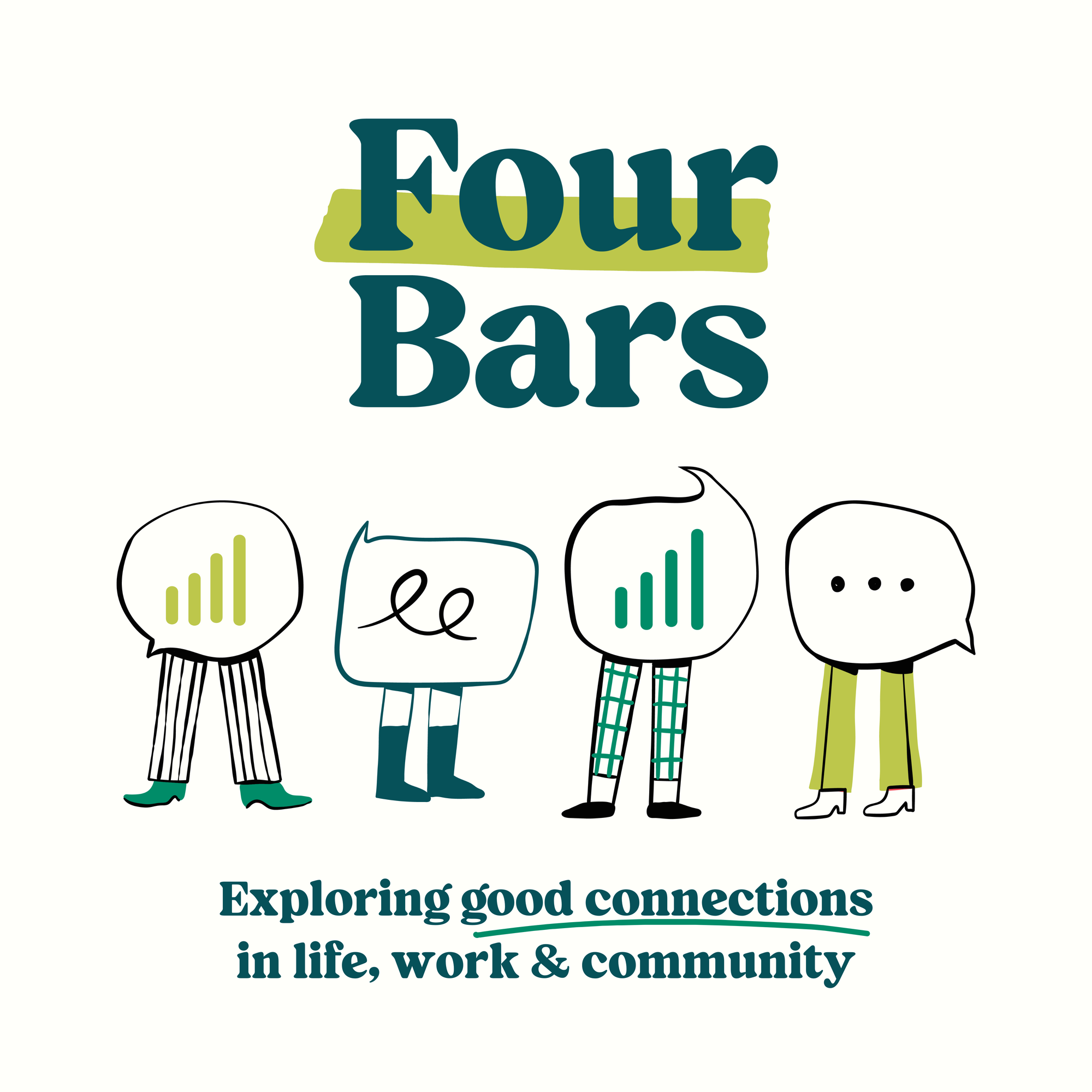Taboos around money conversations can keep us financially stuck for decades. In this enlightening discussion with Iffy Ibekwe, Vice President and Senior Trust Officer at Arvest Wealth Management, we unpack why financial literacy matters and how community-based education can transform our relationship with money.
Iffy shares the origin story of her popular Money Moves Book Club and the successful financial literacy conference she organized that attracted nearly 180 attendees hungry for knowledge. The conversation reveals how our "money stories" - beliefs inherited from family and community - profoundly shape our financial behaviors, often without our awareness. These unexamined narratives can keep us trapped in cycles of shame, anxiety, and avoidance when it comes to our finances.
We explore the changing landscape of money management across generations, from checkbooks to digital payments, and discuss the challenges parents face in teaching financial concepts to children who view money as increasingly abstract. Iffy provides practical guidance on starting your financial journey, emphasizing the importance of simply looking at what you have as a crucial first step many people avoid.
The discussion takes a deep dive into trust and estate planning, with Iffy drawing on her background as an estate planning attorney to explain why everyone has an "estate" regardless of wealth level. Her insights on how proper planning can prevent family conflicts during times of grief offer powerful motivation for getting your financial affairs in order.
Whether you're just beginning to examine your relationship with money or looking to optimize your wealth management strategy, this conversation provides valuable perspective on building a financial team and taking that crucial "next right step" in your journey. Listen now to gain the confidence and knowledge to break through financial taboos and take control of your financial future.
More About This Episode
Demystifying Wealth: How Financial Literacy Empowers Communities
Money—it’s a topic that shapes our daily lives, yet so many of us struggle to talk about it openly. Whether it's budgeting, investing, estate planning, or preparing for financial emergencies, money can feel overwhelming. The good news? Financial literacy isn’t reserved for the wealthy. It’s a tool everyone can use to create security, reduce stress, and build a better future.
In our conversation with Iffy Ibekwe, Vice President and Senior Trust Officer at Arvest Wealth Management, we dug into the importance of financial education, estate planning, and building a team of professionals who can help navigate wealth management. The insights she shared can help individuals at any stage of life take control of their financial well-being and contribute to stronger, more financially resilient communities.
Understanding Your Money Story
Our beliefs about money don’t form in a vacuum. They are deeply influenced by our upbringing, family dynamics, and past experiences. Iffy highlighted how our “money stories” shape our financial habits—sometimes in ways we don’t even realize.
For instance, were you raised in a household where money was always a source of stress? Did your parents openly discuss finances, or was it considered a taboo topic? Did you grow up thinking wealth was reserved for certain people? These subconscious beliefs can affect the way we save, invest, and even how we view financial planning.
Taking the time to examine these money stories is a crucial first step toward making informed financial decisions. One way to start is by reflecting on questions like:
- What did I learn about money growing up?
- Do I feel anxious when checking my bank account?
- What financial habits have I developed over the years?
- How do I view wealth and financial success?
By recognizing the patterns we’ve inherited, we can begin to reshape them and take intentional steps toward a healthier relationship with money.
The Power of Financial Literacy
Financial education is something many of us never received in school. Basic skills like balancing a checkbook, understanding credit, or planning for retirement aren’t always covered in standard curriculums. This lack of education can leave many people feeling lost when it comes to managing their money.
Iffy shared that financial literacy isn’t just about knowing how to invest—it’s about understanding how to manage money effectively in all aspects of life. From budgeting and saving to insurance planning and estate management, having a foundational knowledge of finances can empower individuals to make informed decisions.
One of the best ways to build financial literacy is by seeking resources that make money management more approachable. Some great places to start include:
- Books & Podcasts: There are plenty of books and podcasts dedicated to financial education, covering everything from personal finance basics to advanced investment strategies.
- Financial Workshops & Book Clubs: Iffy’s Money Moves Book Club at Blake Street is an example of how communities can come together to learn about wealth management in an open, judgment-free environment.
- Online Tools & Budgeting Apps: Apps like Mint, YNAB (You Need a Budget), and Personal Capital can help track spending, manage savings goals, and provide insights into your financial habits.
The key takeaway? Financial education should be accessible and ongoing. No matter where you start, taking the initiative to learn is what matters most.
Estate Planning: A Gift to Your Loved Ones
When most people hear the term estate planning, they assume it’s only for the ultra-wealthy. However, estate planning is something that benefits everyone, regardless of income level. Iffy explained that estate planning isn’t just about distributing assets after death—it’s about ensuring that your financial affairs are handled smoothly during your lifetime as well.
Without a clear plan, families can face significant stress, legal battles, and financial burdens when a loved one passes away or becomes incapacitated. Estate planning ensures that:
- Your wishes are honored regarding medical decisions, finances, and asset distribution.
- Your family avoids costly probate proceedings that can take years to resolve.
- Minor children or dependents are properly cared for in the event of a tragedy.
A well-prepared estate plan includes:
- A Will – Specifies how your assets should be distributed and who will be responsible for carrying out your wishes.
- Power of Attorney – Designates someone to make financial or medical decisions on your behalf if you become incapacitated.
- A Trust – Helps manage and distribute assets outside of probate, ensuring a smooth transition.
- Beneficiary Designations – Ensures retirement accounts and life insurance policies go to the intended recipients.
Estate planning may seem overwhelming, but working with a professional—whether a financial advisor, estate attorney, or trust officer—can make the process much more manageable.
Building Your Financial Team
One of the most powerful takeaways from our conversation with Iffy is that you don’t have to navigate financial planning alone. Just like you wouldn’t perform surgery on yourself or repair your own car, managing complex financial decisions is best done with a team of experts.
Depending on your financial goals and needs, your financial team might include:
- Financial Advisor – Helps with investments, retirement planning, and long-term financial goals.
- Estate Planning Attorney – Assists in drafting wills, trusts, and legal documents for asset protection.
- CPA (Certified Public Accountant) – Manages tax planning and ensures compliance with financial regulations.
- Insurance Professional – Provides guidance on life insurance, health insurance, and long-term care planning.
Having the right professionals in place ensures that your financial decisions align with your short-term needs and long-term goals.
Breaking the Money Taboo: Start the Conversation
One of the most significant barriers to financial empowerment is that money is still considered a taboo topic. Many people hesitate to talk about finances with family members, partners, or even financial professionals due to fear, embarrassment, or simply not knowing where to begin.
However, the more we normalize conversations about money, the more we can learn from each other, make better financial choices, and build stronger, financially stable communities.
So, where do you start?
- Take inventory of your finances – List out your income, expenses, savings, and debts to get a clear picture of your financial standing.
- Have open conversations – Whether it’s with a spouse, financial advisor, or trusted friend, discussing money openly can lead to better decision-making.
- Educate yourself – Read a book, listen to a financial podcast, or attend a money management workshop.
- Take one actionable step – Whether it’s setting up a budget, checking your credit score, or making an appointment with a financial planner, the key is to start somewhere.
Your Next Right Step
As Iffy wisely put it, financial empowerment starts with taking the next right step—whatever that may look like for you.
Maybe it’s learning more about your money mindset. Maybe it’s finally sitting down to create a budget. Or maybe it’s taking that long-overdue step to set up a will or trust for your loved ones. Whatever it is, taking action today will set you up for greater financial security tomorrow.
The journey to financial confidence doesn’t have to be overwhelming or isolating. By educating yourself, building the right financial team, and fostering open conversations about money, you can take control of your financial future and contribute to a stronger, more financially literate community.
So, what’s your next right step?



Member discussion: